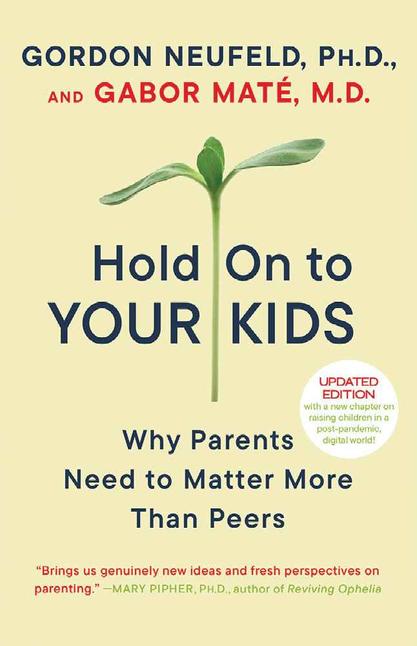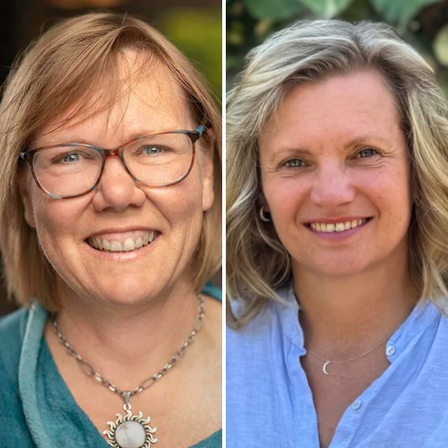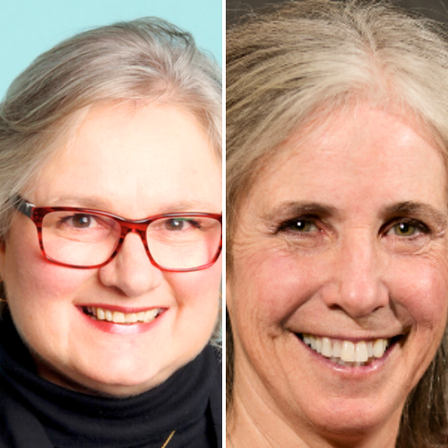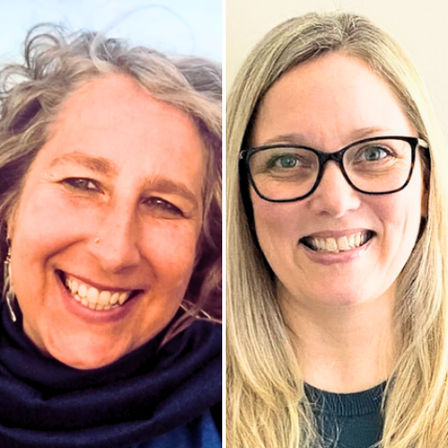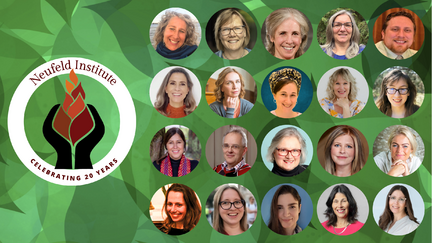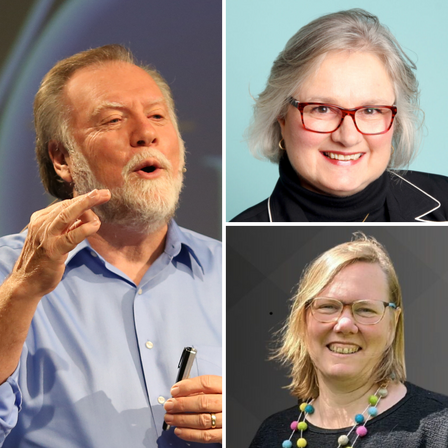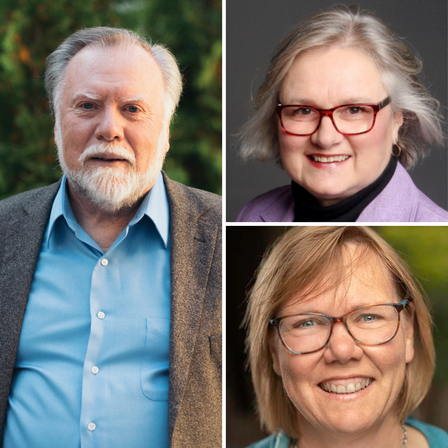Dr. Gordon Neufeld’s attachment-based developmental approach
Many of us who have had the privilege of studying personally with Dr. Neufeld refer to the comprehensive model he teaches about and from, as the Neufeld Approach and sometimes even the Neufeld Paradigm.
We assure you that these handles are not Neufeld's idea nor is he happy with them. The label he prefers is an attachment-based developmental approach. It is a mouthful to be sure, but a very meaningful one indeed.
He has created almost 40 courses to date, not only to explain this approach but also to share the insights that derive from viewing children and adults through the lenses provided by this model. We're sure he could create even more courses, but is probably waiting for us to catch up.
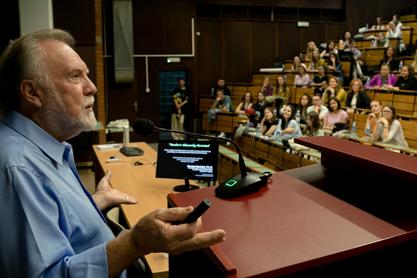
So what is the attachment-based developmental approach, and how is it distinct from other models of human behaviour?
First of all, development is about the unfolding of human potential, that is, becoming all that we can be in the sense of being fully human and humane. It is not just about change over time. Nor is it just about children. At the core of developmentalist thinking is the assumption or belief that the unfolding of human potential is spontaneous if conditions are conducive. In other words, if the right conditions exist, a child will spontaneously come to walk, talk, think, care, consider, reflect, self-regulate, get along, heal, recover, even fit into society. When we try to hurry children along or attempt to teach that which would come naturally, we actually interfere with the spontaneous processes by which children mature quite on their own. When we battle against the symptoms of immaturity and stuckness, we risk exacerbating the root problems.
In the developmental approach, raising children is about providing the conditions that will bring them to be all that they can be as humans, regardless of age, gender or disability. In the developmental approach, the potential is the gold standard by which everything else is compared. The key insight has to do with what is missing when viewed in the context of what is possible if conditions were conducive for the spontaneous unfolding of human potential. This developmental map is laid out in Neufeld's Intensive I which serves as a conceptual foundation for all the other courses. From a developmental perspective, stuckness is the most likely explanation and a shared common denominator of most of our troubles — for adults as well as children.
The developmental approach is distinct from all socialization approaches that have societal fit as the highest priority and thus the primary responsibility of parents and teachers. The objective of socialization approach is to teach children to be good, to get along, and to learn role appropriate behaviour. To socialization approaches, life is a skill to be learned, including autonomy, conduct, self-control, caring, boundaries, problem-solving, resilience, empathy, courage, patience, and so on and so on. The question most asked from this perspective is what to do when a child is out of line or out of order. In socialization approaches, societal fit is the gold standard by which everything else is compared.
The developmental approach is also distinct from the medical disorder approach that also holds "normal" as the gold standard by which everyone is compared. As such, the doctrine of disorder approach is actually a derivative of the socialization approaches, with normal–abnormal continuum being the obsessive preoccupation. In the latest bible of disorders, there are close to 300 different diagnoses of what is wrong with the brain. The developmental approach, on the other hand, begins with the assumption of order, not disorder, that is, that the brain has its reasons which we would do better to try to understand and to come alongside of. What is more likely to be disordered is a society that is not providing the conditions in which humans would realize their fullest potential and which takes a cynical and adversarial approach to the role of Nature.
The developmental approach is the philosophical path less taken in our society and not likely to ever become a mainstream science as it requires a deep implicit trust in Nature as a life force yearning for the potential of every living thing to be realized. From the developmental approach, our primary role as parents and teachers and healers is to work with Nature as midwives to this natural maturation process, as opposed to being agents of socialization.
There have been many developmentalists through the years, some quite well-known in fact, but unfortunately their voices are not being heard by today's students of psychology, nor by today's parents and teachers. Traditionally, developmental theorists created esoteric models with exclusive terminology that unwittingly served to hide their secrets from the public. Dr. Neufeld has attempted to convey the developmental approach with language that corresponds to natural intuition and that does not divide the so-called experts from the adults the children depend upon.
That brings us to the "attachment-based" piece of the approach. What does it mean for a developmental approach to be attachment based? Although the holy grail of the developmental approach is to ascertain the conditions conducive to the unfolding of human potential, the fact that attachment was foundational was not obvious to former developmental theorists. Maslow missed it; Piaget missed it; many of the depth psychologists missed it; even Jean Jacques Rousseau himself missed it. Once made known, the fact that attachment is foundational becomes self-evident to most. The problem with attachment however is that it is about relationship and about context, both somewhat invisible to a behavioural science that demands that everything be easily observed and capable of being measured. The science of attachment depends more on the theoretical processes of synthesis and distillation, putting the puzzle pieces together and observing the picture that emerges.
And what a picture it is! Not only do we discover attachment as the preeminent drive (as opposed to survival as was previously and almost universally assumed) but also the default drive in our brain, with our instincts and emotions and energy all bent on serving this drive. Given that attachment is the default drive, it is clear that it would have to figure into any unfolding of potential. It turns out however that it is not attachment itself that is the answer to the spontaneous unfolding of potential, but rather some rest and release from this relentless search for connectedness that can only happen once attachment has first formed. In other words, the distinctive of this approach is the realization that it is not enough to be well-attached or have deep attachments or even be in right relationship. What is required for true growth to occur is sufficient rest and release from this attachment hunger. And this is where we as adults come into the picture. We are our children's best bet, their only hope in many cases. Our children can't get this fruitful kind of restfulness from each other or from the internet. They can't get this from school or from socialization programs. Hence the title of Dr. Neufeld's book Hold On to Your Kids. By this title he did not mean for us to hold on to them as to hold them back, nor to hold on to them for our own benefit. No, we need to hold on to them so that they can let go of us. Or, in other words, we need to assume the responsibility to provide them with the sense of togetherness they require so that they can rest from working at attachment, and in so doing, emerge spontaneously into their full potential. When we step up to the plate to be a child's attachment answer, we also summon Nature to get on with its singular work of growing our children up into becoming fully human and humane.
A thousand books could be written about this approach to raising children and supporting recovery for adults and still there would be much more to explore and to describe. It is truly a paradigm shift for those who have been steeped in socialization ways of thinking, such as learning theory and the doctrine of disorder approach. For some students, it feels like this approach brings them home to their true selves. For others, it feels like a "slap in the paradigm" that even when welcomed, takes repeated exposure over and over again to truly sink in and become one's own.
In short, we could say that Dr. Neufeld’s legacy is a comprehensive theory of development constructed from joining the dots until a consistent picture has emerged. This model of human development has evolved from decades of synthesis and distillation. The result is an integrated developmental approach rooted in depth psychology; grounded in the developmental paradigm; saturated in attachment theory; congruent with current neurological research; and honed by over 50 years of professional practice, parenting, and personal reflection. In a world of fragmented knowledge, esoteric terminology, strategies divorced from their philosophical moorings, and a smorgasbord approach to treatment, Dr. Neufeld’s approach is a breath of fresh air. It serves as a welcome alternative to the current cognitive behavioural fare, as well as to the medical "disorder" approach. Dr. Neufeld’s approach has clear and practical implications for practice and treatment, regardless of one’s arena of involvement — child, adolescent, adult, marital, or family.
Neufeld's attachment-based developmental model is evidence informed and has been used effectively in a wide variety of venues and settings: parenting, classroom, special behaviour programs, alternate education settings, day-care settings, treatment programs, therapy, correctional settings, aboriginal communities, adoption, counselling, the foster system, and more.
Hold On to Your Kids: Why Parents Need to Matter More Than Peers
By Gordon Neufeld and Gabor Maté
This essential book by Gordon Neufeld and Gabor Maté has for more than 20 years been a cornerstone in parenting literature. The book explores the crucial role of parental attachment in child development.
With the 2024 edition, updated insights and practical advice help parents navigate today's challenges, reinforcing the vital bond between parents and their children to foster emotional health and resilience. Reclaim your pivotal role in your child's life with this timeless guide.
Hold On To Your Kids has now been translated in over 35 languages.
Making Sense of Kids: developmental science in practice
in over 35 languages
Neufeld's attachment-based developmental approach is grounded in over five decades of work as a clinical psychologist, university instructor, and developmental theorist. In 2004, he shared some of these insights in the book Hold On to Your Kids, which helped awaken parents and professionals worldwide to the importance of attachment and developmental science. Many who first discovered the approach through the book have gone on to deepen their understanding through the Neufeld Institute’s 30+ courses. Today, a growing network of language programs and dedicated language directors actively bring these life-changing insights to communities in their own languages and cultural contexts.
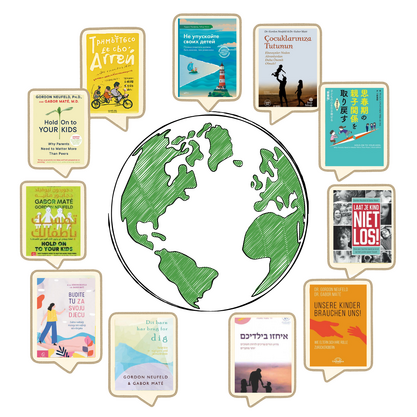
Upcoming Scheduled Classes
Some of our courses are also offered as scheduled classes from time to time with our Faculty providing weekly live special support sessions. If you already have taken the course in its self-paced version, you can enrol in the scheduled class for a fee of only 50 CAD.
Classes Start: March 31, 2026
Tuesdays 10:00AM – 11:00AM PT
Runs for 8 weeks
With Heather Ferguson and Celena Krahn
$250 CAD
Part II of the Power to Parent gets to the heart of developmental science — that growth happens quite spontaneously if conditions are conducive. Neufeld expands on just what those conditions are and the role of parents in the maturing processes. Since growing older is no guarantee of growing up, knowing what children truly need from their parents is key to raising children.
Classes Start: April 2, 2026
Thursdays 10:00 – 11:30AM PT
Runs for 8 weeks
With Tamara Strijack and Jodi Bergman
$250 CAD
Neufeld puts the puzzle pieces together to reveal true play as Nature's way of taking care of emotion. This realization makes sense of the trouble we are now in, as the culture that was meant to take care of play has largely been lost. These insights are distinct to this approach and key to supporting healthy development and emotional well-being in our children and ourselves.
Classes Start: April 8, 2026
Wednesdays: 1:00 – 2:00 PM PT
Runs for 4 weeks
With Lisa Weiner and Robin Brooks-Sherriff
$150 CAD
Today's adolescents live in a hypersexualized culture. Despite their greater exposure and education, current evidence suggests that many youth are in trouble sexually and that their sexual development is not unfolding as it should.
Classes Start: April 14, 2026
Tuesdays 5:30 – 6:30PM PT
Runs for 6 weeks
No one is more susceptible to being misunderstood than the preschooler — especially when adults are trying to rush them out of their untempered nature, inconsiderate relating, or separation problems.
Classes Start: April 29, 2026
Wednesdays 10:00 – 11:30 AM PT
Runs for 7 weeks
With Jule Epp and Karen Bollman
$250 CAD
This course provides a fresh look at the causes and consequences of sensory overload in the brain and its role in a spectrum of syndromes, including autism, and to a lesser extent, some forms of giftedness as well as attention problems.
Upcoming Events and Conferences
The Neufeld Institute’s attachment-based developmental approach has reached families, educators, and helping professionals across diverse cultures and more than 140 countries.
Faculty members around the world are offering presentations in their own languages and cultural contexts, each grounded in the same core understanding: Becoming the Answer Our Children Need.

Thriving Family, Thriving Society: A Conference on Emotional Well-Being
Events include a seminar for professionals and a two day public conference.
- March 13–15, 2026, Prague, Czechia

Creating a Neighbourhood of Connection
- March 20, 21, and 24, 2026, Ljubljana, Slovenia

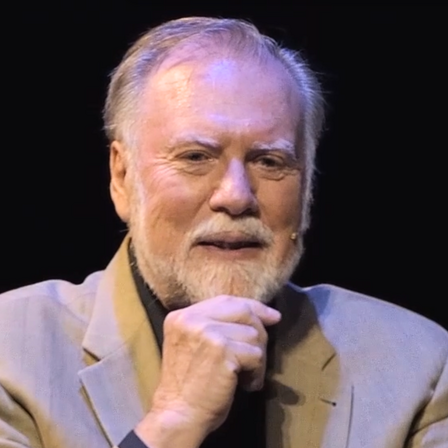
Fresh Insights on Attachment: a leading theorist puts the puzzle pieces together
- March 28 or 29 – tbc, University of Bucharest in Bucharest, Romania
Inquiries
If you have questions or require additional information that you cannot find on our website or FAQ page, you may contact our office on our Inquiries page.
Charity & Non-Profit Status
The Neufeld Institute is a registered Canadian charitable organization under the name Neufeld Institute Foundation and is also registered as a NPO in British Columbia. If you would like to make a contribution to us, please go to our donation page.
Stay Connected with the Neufeld Institute
Sign up for our newsletter to receive insights, editorials, and updates on new courses, webinars, and scheduled classes — all rooted in the Neufeld approach. Whether you're a parent, educator, or professional, our resources are here to help you make sense of the children in your care.

